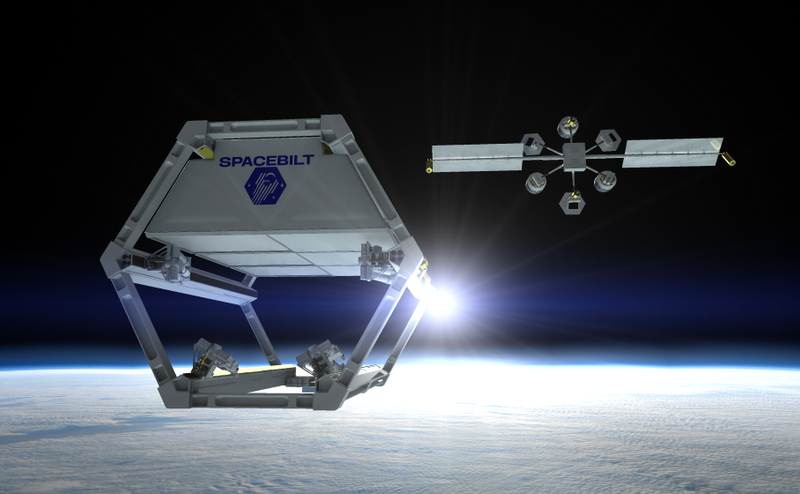This article was upadted April 16 at 4 pm ET with information on HPE’s Spaceborne Computer-2.
COLORADO SPRINGS – Spacebilt announced an agreement April 8 with Phison to qualify a powerful data server on the International Space Station.
When the Large in Space Server (LiSS) launches in 2025, it will be one of the most powerful data server in orbit. Liss will have “100 terabytes plus of data storage,” Dennis Wingo, Spacebilt chief technology officer told SpaceNews. “We are qualifying it so we can launch petabyte servers in the future.”
LiSS is headed to an external platform on the Japanese Kibo module for six months of qualification testing. The server includes Microchip Technology’s Polarfire field-programmable gate array, an Nvidia Jetson computer designed for artificial intelligence applications and a Phison X1 solid-state drive.
In recent years, companies have been racing to space qualify and launch state-of-the-art computers. Hewlett Packard Enterprises’ Spaceborne Computer 2, launched in 2021 and updated with twice the computation capacity and additional flash memory storage earlier this year, delivered more than 120 terabytes of solid-state-drive storage, Mark Fernandez, HPE Spaceborne Computer 2 principal investigator, told SpaceNews by email.
Petabyte Servers
“Risk reduction activities such as the LiSS mission are crucial to our efforts to field advanced spacecraft with compute, storage and communications systems for the21st century,” Wingo said in a statement. “Qualitative data of the type that we will obtain from this mission will allow us to move directly to flight for petabyte-level server systems for customers interested in advanced servers in space.”
Sebastien Jean, Phison chief technology officer, said in a statement, “From data security, low latency, satellite communications to supporting emerging technologies, companies are eyeing a space-based data infrastructure. The LiSS project will play a key role in accelerating servers in space.”
The upcoming data server qualification flight helps pave the way for Spacebilt’s multi-orbit logistics vehicle.
“The 100 terabyte server is our risk-reduction prototype of our 1.2 petabyte server that we are flying as part of our work with commercial customers and DIU under the multi-orbit logistics vehicle other transaction authority agreement,” Wingo said.
Lunar Server
In 2022, Santa Clara-based Spacebilt, formerly called Skycorp, flew a prototype Microchip Polarfire RISC-V Linux-based avionics package and data server on ISS.
In 2024, Spacebilt plans to send a powerful data server to the moon with a commercial customer. That mission includes an Armas radiation sensor and a Phison M.2 solid-state drive.
Related
Source link
lol

